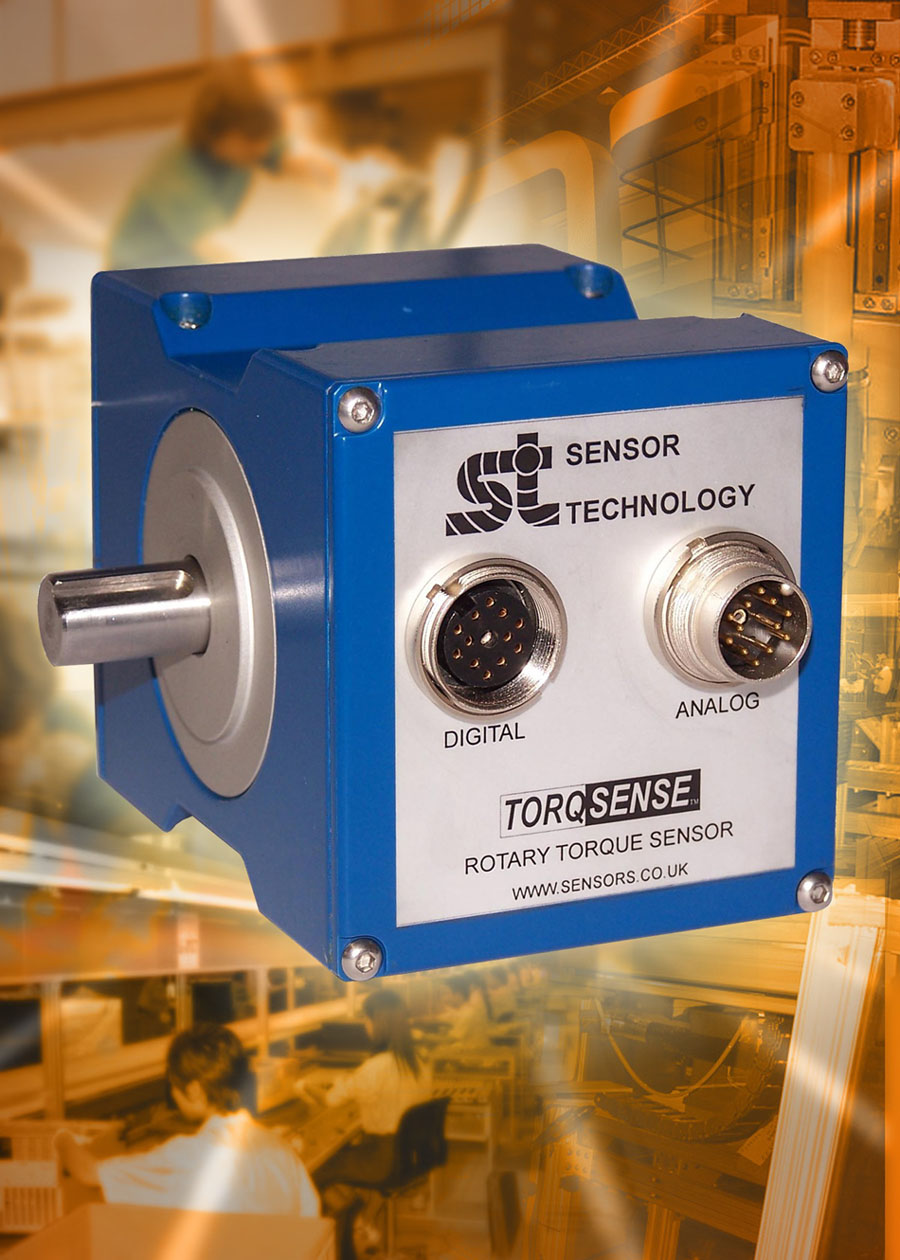Torqsense Gives Pumps A Testing Time At Watson Marlow
The world’s leading specialist in peristaltic pumping has now chosen another of these versatile and dependable sensors for production-line testing of its most critical products.

Torqsense Makes SenseHaving for many years used one of Sensor Technology’s novel TorqSense non-contact torque sensors as an aid to product development.
The TorqSense sensor was selected for this demanding application because of its ease of use and because of the reliability and accuracy that has been consistently demonstrated by the similar unit in use in the development department.
Widely accepted as the world’s fastest growing pump type, peristaltic pumps such as those manufactured by Watson-Marlow have no valves, seals or glands to wear, leak or replace. The fluid contacts only the bore of the hose or tube, thus eliminating the risk of the pump contaminating the fluid, or the fluid contaminating the pump.
Peristaltic pumps have a number of advantages over other pump types: they provide superior flow rate stability, accuracy to +/-0.5%; they are ideal for viscous and abrasive fluids as well as sterile processes; have extensive chemical compatibility; and are inherently hygienic and safe to run. In all, they offer the lowest whole life cost of all pump types.
Many of Watson-Marlow’s pumps are used as components in medical and pharmaceutical equipment and, in these demanding applications, accurate information about the operating characteristics of individual pumps is often needed. To meet the needs of its customers with applications of this type, Watson-Marlow offers the option of supplying products that are 100% tested prior to despatch.
A key element of the testing is the determination of the relationship between the operating torque of the pump and the flow rate it delivers. In order to be able to measure this, a torque sensor that will deliver accurate and reliable results over long periods without adjustment or maintenance is needed. These requirements, the engineers at Watson-Marlow Pumps knew, could most conveniently be met by using a sensor from the Sensor Technology TorqSense range.
These innovative sensors, which are covered by patents, are built around surface acoustic wave (SAW) transducer, which essentially comprise a pattern of interlocking conductive fingers deposited on a piezoelectric substrate, such as quartz.
This arrangement behaves as if it were a conventional resonant circuit with a resonant frequency in the radio frequency range. When the transducer is deformed, however, the resonant frequency changes. In torque sensing applications, the transducer is fixed to the shaft in which it is required to measure the torque. As the shaft twists in response to the applied torque, it deforms the transducer. By measuring the change in resonant frequency of the transducer produced by this deformation, the torque in the shaft can be accurately determined.
Since the SAW transducers operate at radio frequencies, it is easy to couple signals to them wirelessly. Hence, the TorqSense sensors that incorporate the SAW transducer technology can be used on rotating shafts, and can provide data continuously without the need for the inherently unreliable brushes and slip rings that are often found in traditional torque measurement systems.
In the latest application at Watson-Marlow Pumps, a TorqSense sensor with a nominal maximum torque rating of 0.5 Nm is used in a production-line test rig for peristaltic pumps where it typically measures torque over the range 0.11 to 0.17 Nm while the pump drive shaft is rotating at 60 rpm. The results are displayed and recorded using a netbook PC. The test results are ultimately logged against a serial number for every pump so that, in the event of a query from the end user, the test data for the pump in question can be readily located.
“As we had anticipated, the sensor was easy to install and set up,” said Harvey Crook of Watson-Marlow Pumps, “and it’s also very easy to use on a day-to-day basis. We’ve been using it for a considerable time now, and it has proved to be totally reliable, just like its larger counterpart in our development department. Our experience shows that these innovative sensors are a convenient, versatile and cost-effective choice for both development and production line applications.”
CONTACT
Tony Ingham
Sensor Technology Ltd
aji@sensors.co.uk
www.sensors.co.uk
+44 (0) 1869 238400
Monday 30 July 2012 / file under Engineering | Machinery | Technology



